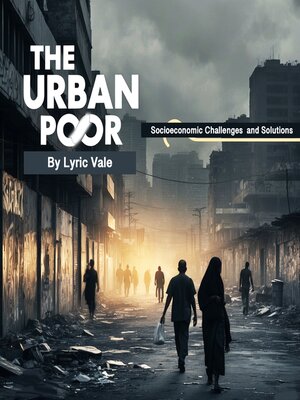
Sign up to save your library
With an OverDrive account, you can save your favorite libraries for at-a-glance information about availability. Find out more about OverDrive accounts.
Find this title in Libby, the library reading app by OverDrive.



Search for a digital library with this title
Title found at these libraries:
| Library Name | Distance |
|---|---|
| Loading... |
Urban poverty has emerged as one of the most pressing social and economic issues of the modern world. As the global population increasingly shifts toward urban centers, the face of poverty is no longer limited to rural areas. Cities, which were once seen as hubs of opportunity, now grapple with growing disparities between the rich and the poor. The urban poor live in environments that offer limited access to basic services such as housing, healthcare, education, and employment opportunities, making it difficult for them to escape the cycle of poverty.
The rapid pace of urbanization, especially in developing countries, has led to the creation of sprawling slums and informal settlements where millions of people struggle to survive. These areas are often characterized by overcrowded living conditions, inadequate infrastructure, and limited access to clean water and sanitation. As cities expand, they fail to provide adequate housing for their increasing populations, and the urban poor are forced to live in substandard conditions with few opportunities for upward mobility.
Urban poverty is not just about a lack of income; it is about a lack of access to the resources and services that are essential for a decent quality of life. The urban poor are often marginalized and excluded from the formal economy, finding themselves in low-wage, insecure jobs or relying on informal employment. This lack of stable income exacerbates their poverty and limits their ability to meet basic needs such as food, healthcare, and education.







